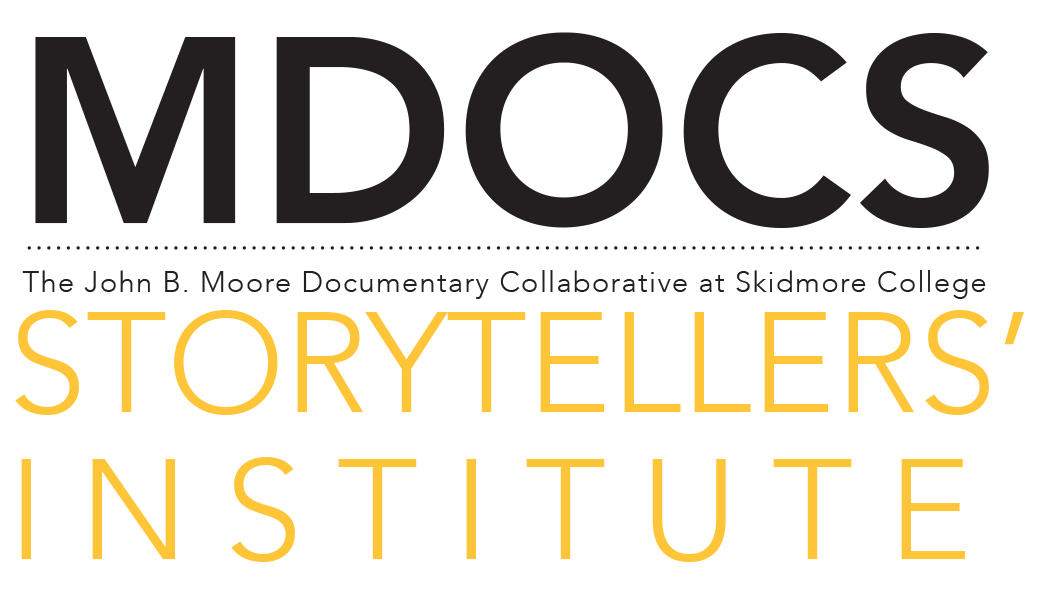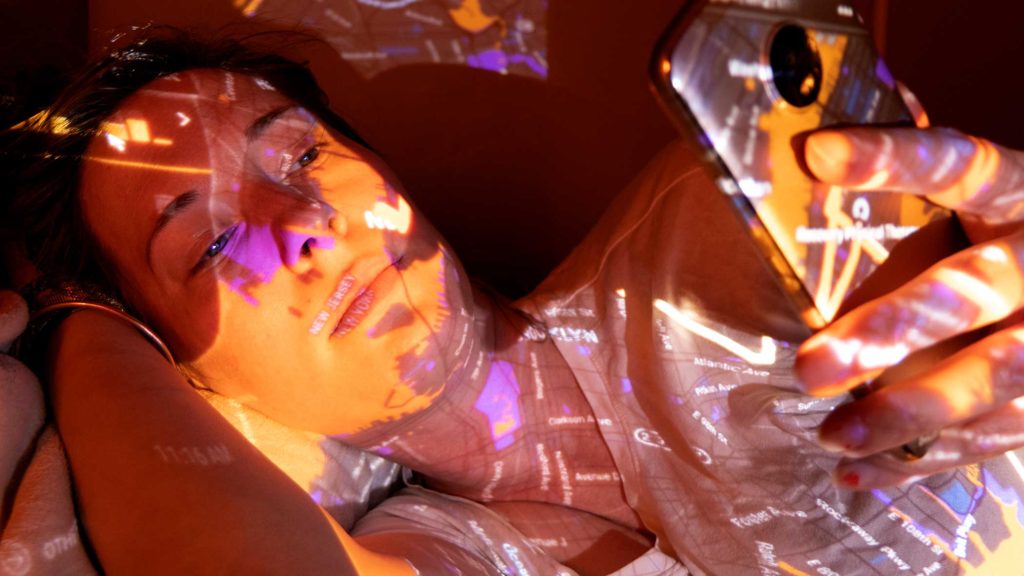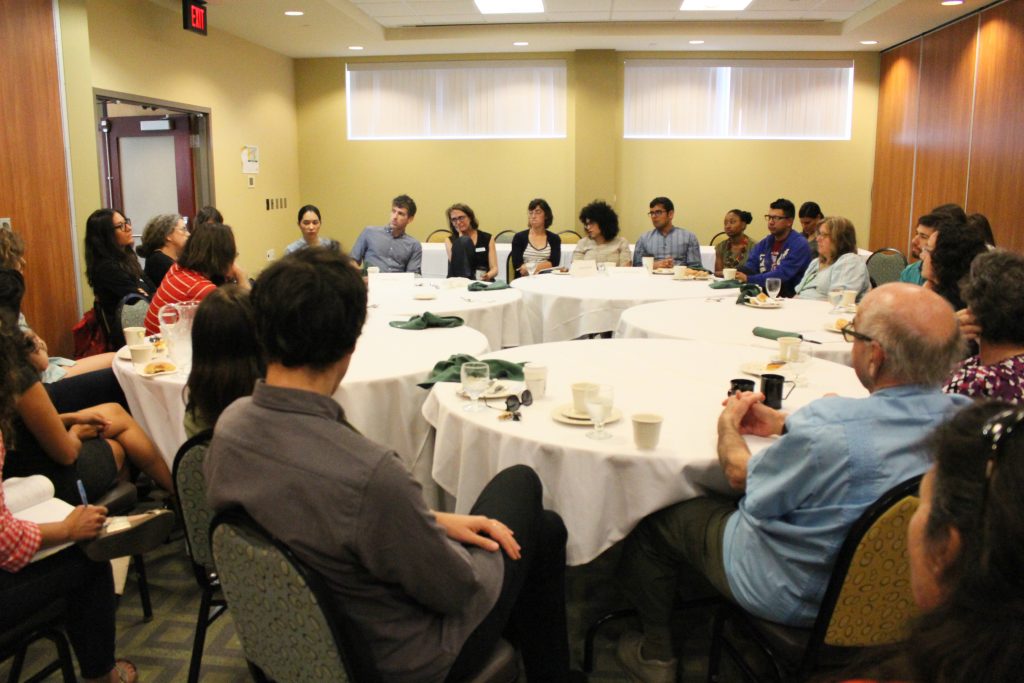All events are free and open to the public. Register here to save a seat!
Day 1 June 7 | Day 2 June 8 | Day 3 June 9 | Day 4 June 10
Day 1 Thursday, June 7
6pm Keynote 1 The Feeling of Being Watched Filmmaker Talk
Assia Boundaoui, Rabab Haj Yahya, and Shuling Yong
Location: Payne Room, Tang Teaching Museum
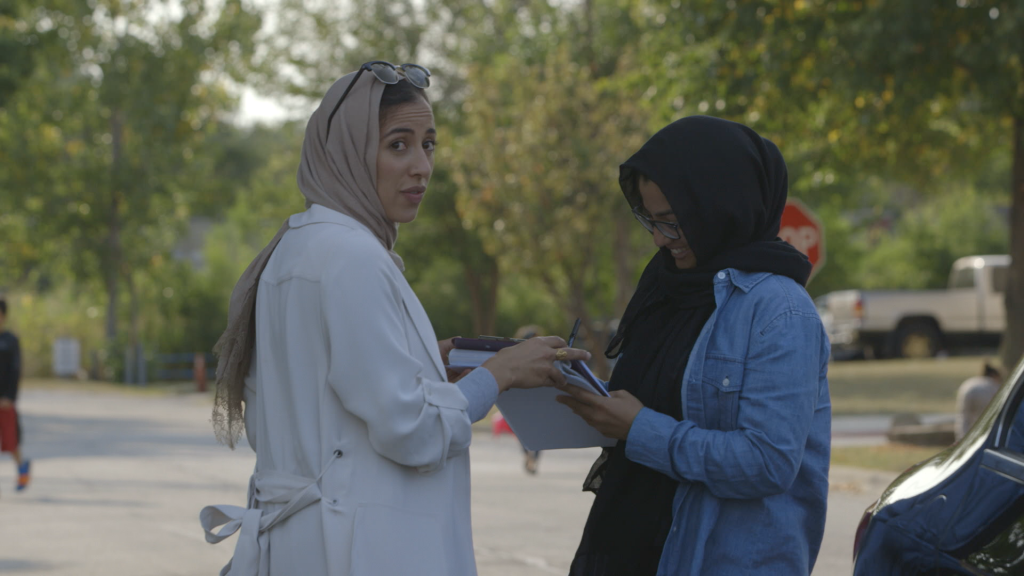
The Director, Cinematographer, and Editor of the new documentary The Feeling of Being Watched, will show clips from and discuss the process of making this highly personal film, which is taking the festival world by storm. In the Arab-American neighborhood outside of Chicago where director Assia Boundaoui grew up, most of her neighbors think they have been under surveillance for over a decade. While investigating their experiences, Assia uncovers tens of thousands of pages of FBI documents that prove her hometown was the subject of one of the largest counterterrorism investigations ever conducted in the U.S. before 9/11, code-named “Operation Vulgar Betrayal.” With unprecedented access, The Feeling of Being Watched weaves the personal and the political as it follows the filmmaker’s examination of why her community fell under blanket government surveillance. Assia struggles to disrupt the government secrecy shrouding what happened and takes the FBI to federal court to compel them to make the records they collected about her community public. In the process, she confronts long-hidden truths about the FBI’s relationship to her community. The Feeling of Being Watched follows Assia as she pieces together this secret FBI operation, while grappling with the effects of a lifetime of surveillance on herself and her family.
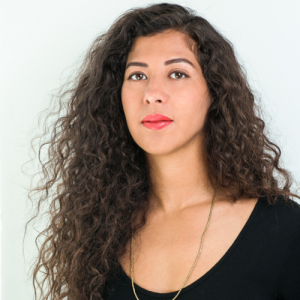 ASSIA BOUNDAOUI (Director/Producer) is an Algerian-American journalist and filmmaker based in Chicago. She has reported for BBC, NPR, AlJazeera, VICE, and CNN and was the recipient of a first place Mark of Excellence Award from the Society of Professional Journalists for her reporting in Yemen. She directed a short film on hijabi hair salons for the HBO Lenny docu-series, which premiered as an official selection of the 2018 Sundance Film Festival. Assia has a Masters degree in journalism from New York University and is fluent in Arabic. The Feeling of Being Watched is her directorial debut.
ASSIA BOUNDAOUI (Director/Producer) is an Algerian-American journalist and filmmaker based in Chicago. She has reported for BBC, NPR, AlJazeera, VICE, and CNN and was the recipient of a first place Mark of Excellence Award from the Society of Professional Journalists for her reporting in Yemen. She directed a short film on hijabi hair salons for the HBO Lenny docu-series, which premiered as an official selection of the 2018 Sundance Film Festival. Assia has a Masters degree in journalism from New York University and is fluent in Arabic. The Feeling of Being Watched is her directorial debut.
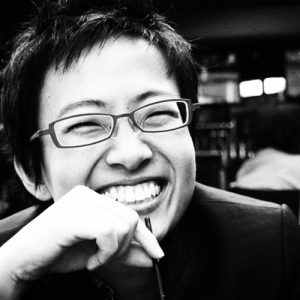 SHULING YONG (Director of Photography) is a Singapore-born, Chicago-based documentary filmmaker with a passion for social change. She has worked on films like Radical Grace (2015, dir. Rebecca Parrish), In Time to Come (2017, dir. Tan Pin Pin), and films by the award-winning Chicago media collective Kartemquin Films such as In the Game (2015, dir. Maria Finitzo), and America to Come (2018, dir. Steve James). Shuling’s film Growing Roots (2015) premiered on the Discovery Channel. She is now directing her first feature-length documentary, Unteachable, which was selected for Good Pitch² Southeast Asia 2017 and won Best Pitch at the CNEX Chinese Documentary Film Forum 2017. Shuling is a Kartemquin Films Diverse Voices in Docs Fellow, a participating filmmaker at the BRITDOC Queer Impact Producers Lab, the DocNet Southeast Asia Strategy Workshop and the KOMAS Video For Change Forum.
SHULING YONG (Director of Photography) is a Singapore-born, Chicago-based documentary filmmaker with a passion for social change. She has worked on films like Radical Grace (2015, dir. Rebecca Parrish), In Time to Come (2017, dir. Tan Pin Pin), and films by the award-winning Chicago media collective Kartemquin Films such as In the Game (2015, dir. Maria Finitzo), and America to Come (2018, dir. Steve James). Shuling’s film Growing Roots (2015) premiered on the Discovery Channel. She is now directing her first feature-length documentary, Unteachable, which was selected for Good Pitch² Southeast Asia 2017 and won Best Pitch at the CNEX Chinese Documentary Film Forum 2017. Shuling is a Kartemquin Films Diverse Voices in Docs Fellow, a participating filmmaker at the BRITDOC Queer Impact Producers Lab, the DocNet Southeast Asia Strategy Workshop and the KOMAS Video For Change Forum.
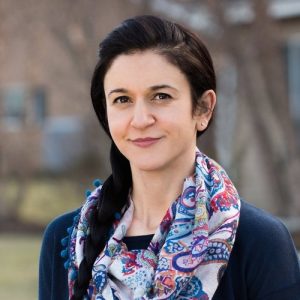 RABAB HAJ YAHYA (Editor) is an Emmy-nominated documentary editor and a Sundance Edit and Story Lab Fellow. Her recent work includes the award-winning feature documentary Speed Sisters (HotDocs 2015), Love the Sinner (Tribeca 2017) and the web series The Secret Life of Muslims (Peabody Finalist, Vox and USA Today, 2016). Rabab has also edited numerous documentaries commissioned by the Al Jazeera Documentary Channel, including Enemies of the South (2015), which was featured in multiple prime-time slots on the network. In between projects, Rabab has dedicated a significant amount of her time helping aspiring editors and filmmakers, through training and pro-bono consultations in the Middle East, West Africa, and the Balkans. Rabab speaks English, Arabic, and Hebrew fluently and currently lives in New York.
RABAB HAJ YAHYA (Editor) is an Emmy-nominated documentary editor and a Sundance Edit and Story Lab Fellow. Her recent work includes the award-winning feature documentary Speed Sisters (HotDocs 2015), Love the Sinner (Tribeca 2017) and the web series The Secret Life of Muslims (Peabody Finalist, Vox and USA Today, 2016). Rabab has also edited numerous documentaries commissioned by the Al Jazeera Documentary Channel, including Enemies of the South (2015), which was featured in multiple prime-time slots on the network. In between projects, Rabab has dedicated a significant amount of her time helping aspiring editors and filmmakers, through training and pro-bono consultations in the Middle East, West Africa, and the Balkans. Rabab speaks English, Arabic, and Hebrew fluently and currently lives in New York.
Day 2 Friday, June 8
10:00 am Sensing Surveillance: Student Exhibition
2018 Student Storytellers’ Fellows
Location: Case Gallery – Breakfast will be served.
Featuring work by: Guy Swartzel, Toma Peiu and Luiza Parvu, Jingy Li, Grace Simmons, Leila Goldstein, Samantha Weisenthal, Nate White, and Taylor Miller
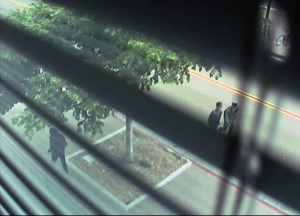
Over the course of the Spring 2018 semester, the Student Storytellers’ Fellows organized and curated an international call for student documentary work addressing the theme of Surveil/Surveilled. The result is a multi-disciplinary exhibition installed by our Student Fellows at Skidmore College for Forum weekend. Over breakfast, we invite you to take a closer look at the exhibition, after which the students will lead a gallery talk.
Curatorial Statement: Through the security camera’s invisible eye watching over public spaces, military interventions, and the corporate creep in cyberspace, surveillance can pervade our everyday lives in insidious ways. The tools of surveillance — observing, watching, listening and recording — are fundamental to documentary work. How can artistic practices engage with or subvert these technologies? What, if any, are the implications of the inherent surveillance present in documentary work?
12:00pm Surveillance, Archive, and Memory Panel
Alexandra Juhasz, Toma Peiu and Luiza Parvu, and Jason Fox
Location: Payne Room, Tang Teaching Museum
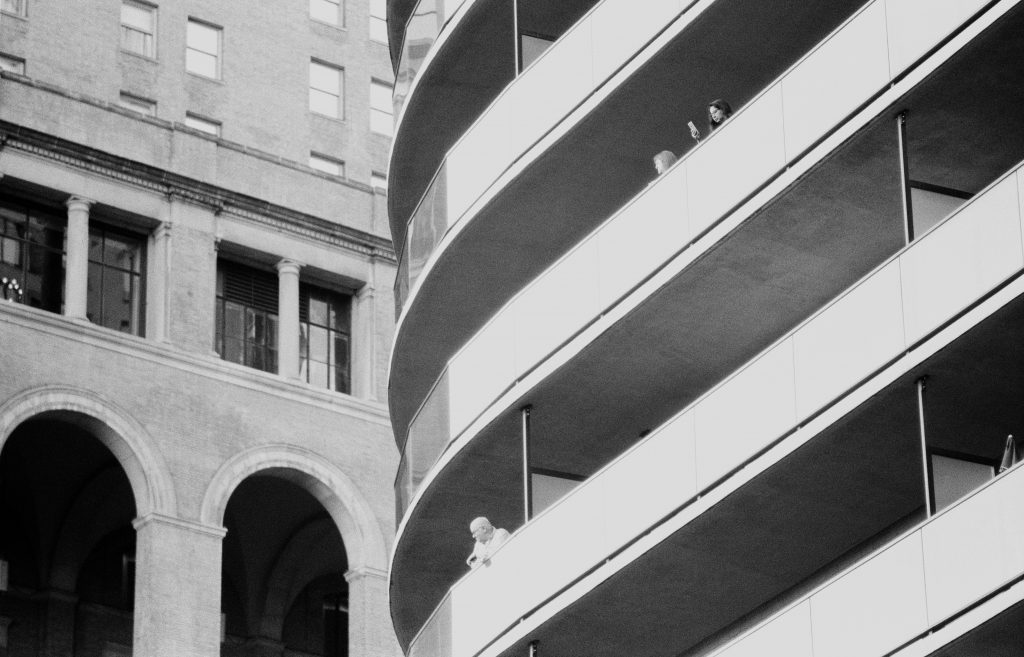
Re-think the archive as a location of surveillance from which to interpret, intervene, create and curate with four maker/scholars working across traditional disciplinary boundaries.
Dr. Alexandra Juhasz is the chair of the Film Department at Brooklyn College, CUNY. She makes and studies committed media practices that contribute to political change and individual and community growth. She is the author/editor of scholarly books on AIDS activist videos, fake (and real) documentaries, YouTube, and black lesbian filmmaking. She is the producer of educational videotapes on feminist issues from AIDS to teen pregnancy as well as the feature fake documentaries The Watermelon Woman (Cheryl Dunye, 1997) and The Owls (Dunye, 2010). Her current work is on and about feminist Internet culture.
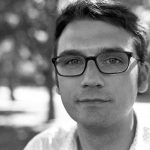 Toma Peiu is a visual artist, writer, media scholar and educator, based in the Colorado Rocky Mountains and New York. He is pursuing a Ph.D. in Emergent Technologies and Media Arts Practices at the University of Colorado Boulder, and holds an MA in Media Studies from The New School in New York. His interest for diasporic and transnational narratives feeds his observation of public urban space and his creative nonfiction archival narratives. His practice moves fluidly across disciplinary boundaries, between photography, sound, the moving image and writing, always in search for both meaning and form. He is currently developing projects on the staging of failure in public space; and, respectively, on the effect of environmental and political disaster on population migration and the metamorphosis of public space in the Aral Sea region of Central Asia.
Toma Peiu is a visual artist, writer, media scholar and educator, based in the Colorado Rocky Mountains and New York. He is pursuing a Ph.D. in Emergent Technologies and Media Arts Practices at the University of Colorado Boulder, and holds an MA in Media Studies from The New School in New York. His interest for diasporic and transnational narratives feeds his observation of public urban space and his creative nonfiction archival narratives. His practice moves fluidly across disciplinary boundaries, between photography, sound, the moving image and writing, always in search for both meaning and form. He is currently developing projects on the staging of failure in public space; and, respectively, on the effect of environmental and political disaster on population migration and the metamorphosis of public space in the Aral Sea region of Central Asia.
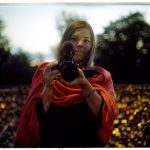 Luiza Pârvu is a filmmaker and educator currently based in Boulder, CO. She holds an MFA in Film Production from New York University – Tisch School of The Arts, New York, USA. She is an experienced film director and editor, working in a variety of formats, including fiction, documentary, experimental and commercial. Her first documentary feature film, Ubi Bene Ibi Patria (A Place of My Own), is currently in post-production. The film, shot in 2016 across Europe and the US, explores the theme of immigration and issues of ethnicity, gender and class in the form of an urgent and personal road movie. She produced it with Toma Peiu, as a thesis for her graduate studies at NYU. The films she has directed or edited have been recognized in over 100 film festivals and events worldwide. In 2012, she was a nominee in the Rising Star category at the Gopo Romanian Film Industry Awards.
Luiza Pârvu is a filmmaker and educator currently based in Boulder, CO. She holds an MFA in Film Production from New York University – Tisch School of The Arts, New York, USA. She is an experienced film director and editor, working in a variety of formats, including fiction, documentary, experimental and commercial. Her first documentary feature film, Ubi Bene Ibi Patria (A Place of My Own), is currently in post-production. The film, shot in 2016 across Europe and the US, explores the theme of immigration and issues of ethnicity, gender and class in the form of an urgent and personal road movie. She produced it with Toma Peiu, as a thesis for her graduate studies at NYU. The films she has directed or edited have been recognized in over 100 film festivals and events worldwide. In 2012, she was a nominee in the Rising Star category at the Gopo Romanian Film Industry Awards.
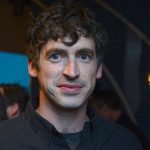 Jason Fox is a filmmaker and professor based in New York. He has taught in the Graduate School of Cinema Studies at New York University, Princeton University, Vassar College, and CUNY Hunter College. His award-winning work as a director, cinematographer, and editor has screened internationally in film festivals including Sundance, AFI Fest, and Venice, and internationally in galleries and on broadcast television. He has worked as a film programmer in conjunction with The American Museum of Natural History, The Flaherty Seminar, and the Museum of Modern Art, among other venues. He is a recipient of a Union Square Award for social justice, and he is also the founding editor of the peer-reviewed journal of documentary studies, World Records, published by UnionDocs in Brooklyn, NY.
Jason Fox is a filmmaker and professor based in New York. He has taught in the Graduate School of Cinema Studies at New York University, Princeton University, Vassar College, and CUNY Hunter College. His award-winning work as a director, cinematographer, and editor has screened internationally in film festivals including Sundance, AFI Fest, and Venice, and internationally in galleries and on broadcast television. He has worked as a film programmer in conjunction with The American Museum of Natural History, The Flaherty Seminar, and the Museum of Modern Art, among other venues. He is a recipient of a Union Square Award for social justice, and he is also the founding editor of the peer-reviewed journal of documentary studies, World Records, published by UnionDocs in Brooklyn, NY.
3pm Protection and Accountability Workshops
Tamika Lewis (Our Data Bodies), Virginia Eubanks (Our Data Bodies), and Ines Hofmann Kanna
Location: Payne Room, Tang Teaching Museum

Join us for two separate workshops about the concrete ways in which communities can self-organize against discriminatory surveillance practices and documentarians can be accountable to their sources and protect them from from surveillance. Directly following the workshops, the workshop leaders will come together for a conversation about their shared and divergent practices.
Our Data Bodies members Tamika Lewis (An organizer and artist whose primary focus is advancing Queer People of Color and marginalized communities) and Virginia Eubanks (A writer, teacher and welfare rights 
 organizer from Troy, NY) will lead us in a workshop about how we can protect ourselves and our communities from the surveillance of our private data. Our Data Bodies is Based in marginalized neighborhoods in Charlotte, North Carolina; Detroit, Michigan; and Los Angeles, California. They are dedicated to: looking at digital data collection and our human rights; helping local communities, community organizations, and social support networks; growing a national conversation on safety, privacy, and data protection needs of marginalized communities; and showing how different data systems impact re-entry, fair housing, public assistance, and community development.
organizer from Troy, NY) will lead us in a workshop about how we can protect ourselves and our communities from the surveillance of our private data. Our Data Bodies is Based in marginalized neighborhoods in Charlotte, North Carolina; Detroit, Michigan; and Los Angeles, California. They are dedicated to: looking at digital data collection and our human rights; helping local communities, community organizations, and social support networks; growing a national conversation on safety, privacy, and data protection needs of marginalized communities; and showing how different data systems impact re-entry, fair housing, public assistance, and community development.
 Ines Hofmann Kanna will lead us in a workshop about how documentarians can be accountable to their subjects and sources by rigorously protecting their data. Ines has been producing and directing film and television projects for over twenty years. She began her career at Boston’s PBS station, WGBH, where she worked for ten years, most notably on the hit series Antiques Roadshow. As a freelancer, she continued to produce and direct TV series for cable and public television and filmed in places as close as Iowa and as far as Yemen and Saudi Arabia. She was also a Supervising Producer for ITVS, guiding more than thirty filmmakers from production to broadcast, and acted as Series Producer on two ITVS documentary series. For the past few years, she has been focusing on producing feature documentaries with independent filmmakers, most recently Sonia Kennebeck’s National Bird, which had its world premiere at the 2016 Berlinale and won the 2017 Ridenhour Documentary Film Prize. Ines Hofmann Kanna was born and raised in East Germany. She lives in Oakland, CA.
Ines Hofmann Kanna will lead us in a workshop about how documentarians can be accountable to their subjects and sources by rigorously protecting their data. Ines has been producing and directing film and television projects for over twenty years. She began her career at Boston’s PBS station, WGBH, where she worked for ten years, most notably on the hit series Antiques Roadshow. As a freelancer, she continued to produce and direct TV series for cable and public television and filmed in places as close as Iowa and as far as Yemen and Saudi Arabia. She was also a Supervising Producer for ITVS, guiding more than thirty filmmakers from production to broadcast, and acted as Series Producer on two ITVS documentary series. For the past few years, she has been focusing on producing feature documentaries with independent filmmakers, most recently Sonia Kennebeck’s National Bird, which had its world premiere at the 2016 Berlinale and won the 2017 Ridenhour Documentary Film Prize. Ines Hofmann Kanna was born and raised in East Germany. She lives in Oakland, CA.
5:00 pm Performing Surveillance Gallery Talk and Performances
Tami Kashia Gold, Sha Sha Feng, Abram Stern, Candace Thompson and Alexis Powell, and Dayna McLeod.
Location: Winter Gallery and Payne Room, Tang Teaching Museum
Prepare to be reoriented during this evening of artists and performers using the tools of surveillance to interrogate and play with governmental, technological, and medical surveillance.
Surveillance: Silence = Death
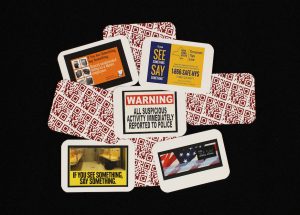
This art installation is inspired by souvenir decks of cards that were sold around ground zero within days of the attack on 9/11. One deck vilifies the Iraqi military. Another deck of cards called “Operation Iraqi Freedom, US Military Heroes” promoted the US military. Simulating airport security checkpoints SURVEILLANCE: Silence = Death looks at the history of Muslims in America, the emotional toll on Muslim Americans living under FBI and police surveillance, the expansion of legalized surveillance in Congress and in courts. “Are we safer now?”
 Tami Gold is broadly recognized in the documentary field as a “pioneer” for her early work using handheld video tools to document social movements and advocate for community objectives. She has created more than 15 highly visible and critically acclaimed documentary films on a variety of topics at the center of public debate in the US and internationally, including women’s rights, public health, conditions for workers and labor organizing, violence and discrimination against LGBT people, police accountability and community relations, and the US relationship with South Africa. Her films have been in the most prestigious film festivals, including the Sundance, Tribeca and New York Film Festival, and have won many awards including the Audience Award at Tribeca. Her work has also been screened on public television’s premiere venue for independent documentary, POV, the PBS World Channel and on HBO. She is especially known for her expertise in grassroots distribution, and the use of media for advocacy and the expression of alternative viewpoints. Tami is a Full Professor with tenure at Hunter College, where she developed the video production curriculum in the 1990s, has led student exchanges to Cuba and South Africa, and has been a leader on many fronts including her recent work directing the James Aronson Awards for Social Justice Journalism. Tami Gold is recipient of Rockefeller and Guggenheim fellowships and a Fullbright.
Tami Gold is broadly recognized in the documentary field as a “pioneer” for her early work using handheld video tools to document social movements and advocate for community objectives. She has created more than 15 highly visible and critically acclaimed documentary films on a variety of topics at the center of public debate in the US and internationally, including women’s rights, public health, conditions for workers and labor organizing, violence and discrimination against LGBT people, police accountability and community relations, and the US relationship with South Africa. Her films have been in the most prestigious film festivals, including the Sundance, Tribeca and New York Film Festival, and have won many awards including the Audience Award at Tribeca. Her work has also been screened on public television’s premiere venue for independent documentary, POV, the PBS World Channel and on HBO. She is especially known for her expertise in grassroots distribution, and the use of media for advocacy and the expression of alternative viewpoints. Tami is a Full Professor with tenure at Hunter College, where she developed the video production curriculum in the 1990s, has led student exchanges to Cuba and South Africa, and has been a leader on many fronts including her recent work directing the James Aronson Awards for Social Justice Journalism. Tami Gold is recipient of Rockefeller and Guggenheim fellowships and a Fullbright.
 Sha Sha Feng combines the best of both the arts and technology to develop socially conscious media. She is a multimedia programmer and designer. Her work includes a range of experiments which integrate web-based art and open-source technologies. She has presented her work at various galleries and events including The Kitchen, Eyebeam, 3LD, Conflux, George Washington Carver Gallery and Staten Island Museum. Sha Sha produces iArt (an interactive art show) with her students in the Department of Film & Media and the Integrated Media Arts MFA program at Hunter College. She is also the co-founder of DIVAS (Digital Interactive Visual Arts Sciences) for Social Justice – a grassroots community organization that aims to bridge the digital divide and teach media literacy and cultural awareness in underserved communities.
Sha Sha Feng combines the best of both the arts and technology to develop socially conscious media. She is a multimedia programmer and designer. Her work includes a range of experiments which integrate web-based art and open-source technologies. She has presented her work at various galleries and events including The Kitchen, Eyebeam, 3LD, Conflux, George Washington Carver Gallery and Staten Island Museum. Sha Sha produces iArt (an interactive art show) with her students in the Department of Film & Media and the Integrated Media Arts MFA program at Hunter College. She is also the co-founder of DIVAS (Digital Interactive Visual Arts Sciences) for Social Justice – a grassroots community organization that aims to bridge the digital divide and teach media literacy and cultural awareness in underserved communities.
Oversight Machines
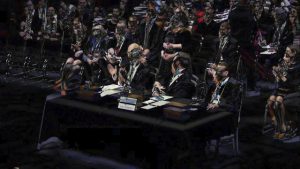
Consider the dual meanings of oversight (supervision and the failure to notice) in a world in which media is increasingly made for and by machines. These images oversee (and overlook) public documents/metadata related to the US Intelligence Community, subjecting these collections to techniques from intelligence (signals intelligence, communications intelligence, and open-source intelligence). These projects are 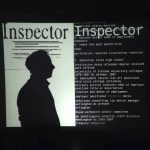 exhibited as a “work in progress,” what is shown is not the result of these processes of sense-making, but the work of sense-making itself.
exhibited as a “work in progress,” what is shown is not the result of these processes of sense-making, but the work of sense-making itself.
Abram Stern’s work builds upon collections of government-produced media and metadata, revealing the material produced by public bureaucracies and the technologies that mediate its experience. His work has been exhibited at Real Art Ways, the Beall Center for Arts and Technology, Works|San Jose, the McDonough Museum of Art, New Langton Arts and various online fora and published in Information Polity. Abram is a PhD student in Film and Digital Media at UC Santa Cruz.
Ok Gurgle
A 15-minute performance piece that explores the complicated, scary, and error-filled relationships we have with our (increasingly capable) Digital Assistants… as well as the government spies and big data servers lurking behind them. Using music, comedy, live performance, projection mapping, and the seemingly innocuous techno surveillance tools we all carry everywhere, Alexis Powell and Candace Thompson will transform their own personal search data (and their terrible speech to text transcriptions) into a farcical commentary on surveillance.
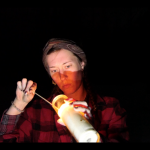 Candace Thompson is a performer and interdisciplinary media maker fascinated with the feedback loops gene rated by place, culture, identity, climate, economics, and daily human interaction. She makes video, audio, web projects, and ritualistic installations– both IRL and online—that examine and challenge the truths we purportedly hold to be self-evident. Perhaps they aren’t so self-evident after all. As a freelance video producer and editor Candace has made music videos, documentaries and experimental narratives. As a performer she has worked in music, theatre, voiceover, and television, most recently on the second season of HBO’s High Maintenance, and with artist Pablo Helguera at such venues as BAM and the Guggenheim. Her project The National Registry of White Men– a response to 45’s proposed Muslim registry– was featured on HuffPo, Fox News, AV Club, Dazed, and Bustle. She is currently receiving her MFA in Integrated Media Art from Hunter College and spending her morning dog walks attempting to make eye contact with and verbally greet every single person she passes… a task which is much harder than you’d expect. kandeetee.net
Candace Thompson is a performer and interdisciplinary media maker fascinated with the feedback loops gene rated by place, culture, identity, climate, economics, and daily human interaction. She makes video, audio, web projects, and ritualistic installations– both IRL and online—that examine and challenge the truths we purportedly hold to be self-evident. Perhaps they aren’t so self-evident after all. As a freelance video producer and editor Candace has made music videos, documentaries and experimental narratives. As a performer she has worked in music, theatre, voiceover, and television, most recently on the second season of HBO’s High Maintenance, and with artist Pablo Helguera at such venues as BAM and the Guggenheim. Her project The National Registry of White Men– a response to 45’s proposed Muslim registry– was featured on HuffPo, Fox News, AV Club, Dazed, and Bustle. She is currently receiving her MFA in Integrated Media Art from Hunter College and spending her morning dog walks attempting to make eye contact with and verbally greet every single person she passes… a task which is much harder than you’d expect. kandeetee.net
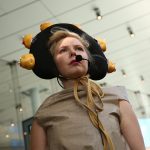 Alexis Powell is a NYC-based performer and interdisciplinary artist. She has performed several original works with her ensemble, Hearsay & Hyperbole (Brooklyn Arts Exchange, Salvage Vanguard Theater, Union Docs, Provincetown Playhouse, Dixon Place, AUNTS, New Museum). She holds an M.A. in drama therapy from New York University, and recently premiered an arts-based research performance exploring Queerness written with playwright Jess Barbagallo called “Not For Resale”. www.hearsayandhyperbole.com
Alexis Powell is a NYC-based performer and interdisciplinary artist. She has performed several original works with her ensemble, Hearsay & Hyperbole (Brooklyn Arts Exchange, Salvage Vanguard Theater, Union Docs, Provincetown Playhouse, Dixon Place, AUNTS, New Museum). She holds an M.A. in drama therapy from New York University, and recently premiered an arts-based research performance exploring Queerness written with playwright Jess Barbagallo called “Not For Resale”. www.hearsayandhyperbole.com
Uterine Concert Hall
 “Uterine Concert Hall is a vaginal media project that features my uterus as the scene of the performance and the instrument of its production. In this work, my vaginal canal acts as the stage with my cervix as the proscenium for the audience of my uterus. Equipped with a 54khz internal speaker (Babypod™) that rests in my vagina, my uterus is exposed to sound. Intimacy as a method of connecting with my audience is central to my performance practice. In Uterine Concert Hall, sound shapes the body. Uterine Concert Hall invites external guests (everyone who is not me) to perform for the audience of my uterus. Karaoke, academic paper presentation excerpts, poetry, and spoken word are just a few of the formats that are encouraged. The catch is that only my uterus experiences the full volume effects of the work. For example, a karaoke performance of Martha and the Muffins’ classic “Echo Beach” would allow both my uterine audience via speaker, and the performer via headphone, to hear the musical accompaniment and resulting sound mix, but other audience members (everyone who is not the venue or the performer) would only hear the performer. Think of it as isolating the vocal track for everyone who isn’t my uterus.” – Dayna McLeod
“Uterine Concert Hall is a vaginal media project that features my uterus as the scene of the performance and the instrument of its production. In this work, my vaginal canal acts as the stage with my cervix as the proscenium for the audience of my uterus. Equipped with a 54khz internal speaker (Babypod™) that rests in my vagina, my uterus is exposed to sound. Intimacy as a method of connecting with my audience is central to my performance practice. In Uterine Concert Hall, sound shapes the body. Uterine Concert Hall invites external guests (everyone who is not me) to perform for the audience of my uterus. Karaoke, academic paper presentation excerpts, poetry, and spoken word are just a few of the formats that are encouraged. The catch is that only my uterus experiences the full volume effects of the work. For example, a karaoke performance of Martha and the Muffins’ classic “Echo Beach” would allow both my uterine audience via speaker, and the performer via headphone, to hear the musical accompaniment and resulting sound mix, but other audience members (everyone who is not the venue or the performer) would only hear the performer. Think of it as isolating the vocal track for everyone who isn’t my uterus.” – Dayna McLeod
 Dayna McLeod is a performance and video artist living in Montreal. Her work uses humour, and capitalizes on exploiting the body’s social and material conditions using cabaret, duration, single channel video, and installation practices. Dayna is PhD candidate at the Centre for Interdisciplinary Studies in Society and Culture at Concordia University pursuing an interdisciplinary degree in Humanities that combines studies in performance art, feminism, queer theory, age, and research-creation practices. Dayna’s dissertation research examines how over-40 feminist performance artists use the body (their own or bodies-for-hire) within their practices and work in relationship to mainstream mass culture. As part of this research, McLeod embarked on a one-year durational performance piece that investigated and lived the stereotypes of a ‘cougar,’ a woman over-40 who aggressively demonstrates her sexuality, by wearing nothing but animal print clothing, 24/7 (archived at: www.CougarThis.com).
Dayna McLeod is a performance and video artist living in Montreal. Her work uses humour, and capitalizes on exploiting the body’s social and material conditions using cabaret, duration, single channel video, and installation practices. Dayna is PhD candidate at the Centre for Interdisciplinary Studies in Society and Culture at Concordia University pursuing an interdisciplinary degree in Humanities that combines studies in performance art, feminism, queer theory, age, and research-creation practices. Dayna’s dissertation research examines how over-40 feminist performance artists use the body (their own or bodies-for-hire) within their practices and work in relationship to mainstream mass culture. As part of this research, McLeod embarked on a one-year durational performance piece that investigated and lived the stereotypes of a ‘cougar,’ a woman over-40 who aggressively demonstrates her sexuality, by wearing nothing but animal print clothing, 24/7 (archived at: www.CougarThis.com).
Day 3 Saturday, June 9
10:00 am Family Panel
Sophie Hamacher, Virginija Vareikyte, and Pilar Timpane
Location: Payne Room, Tang Museum Breakfast will be served.
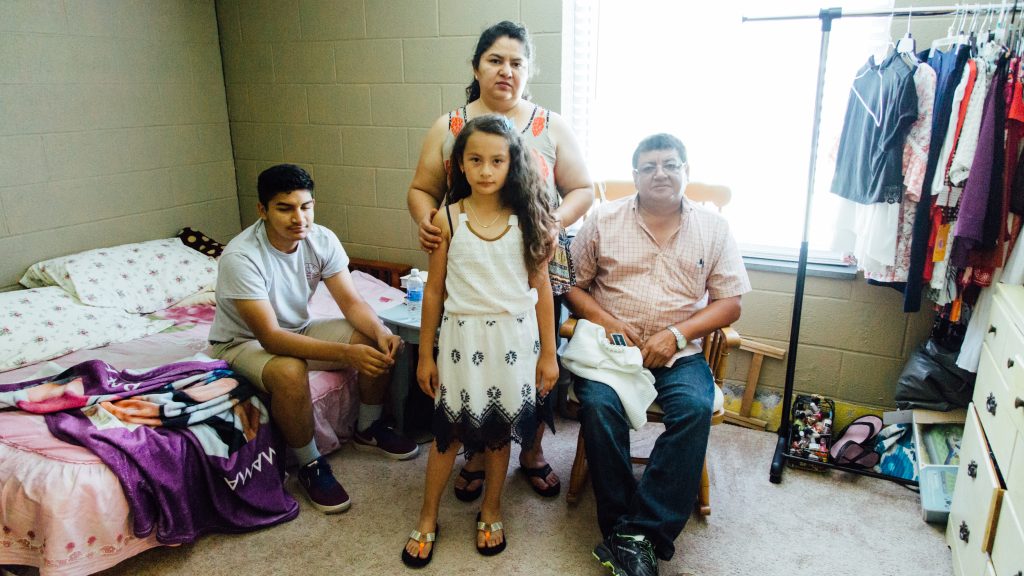
Surveillance can separate families, absorb society in the act of watching young people, and be an intimate part of our own familial relationships. Three makers discuss current projects that revolve around the family and children as sites of surveillance.
Sophie Hamacher is a filmmaker and teacher based between Berlin and New York. She has directed, edited and produced projects ranging in genres from full-length documentary to art videos and experimental films. She received her BA from The School of the Art Institute in Chicago, holds a Meisterschüler degree in Film, Video, New Media (MFA) and a MAT in Art Education from the University of Arts in Berlin. As a critical studies fellow at the Whitney Independent Study Program she wrote extensively on the relationship between art and document, and the unconscious or conscious witnessing of historical events through photography and film. She has taught workshops and seminars about visual media and theory at the University of the Arts in Berlin and will be teaching at the Maine College of Art this fall.
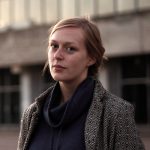 Virginija Vareikyte After graduating Film and Television directing in the Academy of Music and Theatre in Lithuania, Virginija Vareikyte did her first feature documentary “Face Behind the Voice” (2012) about a famous Lithuanian opera singer. The documentary was screened in cinemas throughout Lithuania. Her second documentary “When We Talk About KGB” (2016) co-directed with Maxi Dejoie talks about psychological consequences on society provoked by the Soviet regime and KGB violence. The film was selected in more than 15 international film festivals, including Full Frame Documentary Film Festival (USA), Trieste Film Festival (IT), Transilvania Film Festival (RO). Virginija is an alumnus of workshops such as Ex-Oriente, EsoDoc, and IDFAcademy. At the moment she is working on two feature-length documentaries – “I‘ll Stand by You” (co-directed with Maxi Dejoie) about suicide prevention in Lithuania, and on the archive documentary “Happy Ending” about the rescue operations of a six-year-old boy stuck in an artesian well which was broadcasted on TV and followed by millions of spectators in Italy.
Virginija Vareikyte After graduating Film and Television directing in the Academy of Music and Theatre in Lithuania, Virginija Vareikyte did her first feature documentary “Face Behind the Voice” (2012) about a famous Lithuanian opera singer. The documentary was screened in cinemas throughout Lithuania. Her second documentary “When We Talk About KGB” (2016) co-directed with Maxi Dejoie talks about psychological consequences on society provoked by the Soviet regime and KGB violence. The film was selected in more than 15 international film festivals, including Full Frame Documentary Film Festival (USA), Trieste Film Festival (IT), Transilvania Film Festival (RO). Virginija is an alumnus of workshops such as Ex-Oriente, EsoDoc, and IDFAcademy. At the moment she is working on two feature-length documentaries – “I‘ll Stand by You” (co-directed with Maxi Dejoie) about suicide prevention in Lithuania, and on the archive documentary “Happy Ending” about the rescue operations of a six-year-old boy stuck in an artesian well which was broadcasted on TV and followed by millions of spectators in Italy.
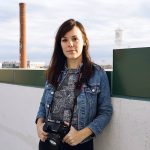 Pilar Timpane is a Durham-based filmmaker, photographer, and writer. Pilar was the associate producer on ATLANTIC CROSSING: A ROBOT’S DARING MISSION (PBS). Recently, she is co-directing and producing SANTUARIO, a documentary short about a woman facing deportation taking sanctuary in a North Carolina church. This project was the 2017 winner of the Tribeca Film Institute’s IF/Then Short Documentary Program at the New Orleans Film Festival and was selected for DocSociety’s 2017 Good Pitch Local in North Carolina. She is also producing THE LAST PARTERA, a feature documentary on midwifery in Costa Rica that has been supported by Southern Documentary Fund and the Big Sky Pitch. Her short films and/or photography have appeared in The Atlantic, The Economist, Scientific American, MSNBC, and elsewhere. Pilar holds a B.A. from Rutgers University and a Master’s degree from Duke University Divinity School.
Pilar Timpane is a Durham-based filmmaker, photographer, and writer. Pilar was the associate producer on ATLANTIC CROSSING: A ROBOT’S DARING MISSION (PBS). Recently, she is co-directing and producing SANTUARIO, a documentary short about a woman facing deportation taking sanctuary in a North Carolina church. This project was the 2017 winner of the Tribeca Film Institute’s IF/Then Short Documentary Program at the New Orleans Film Festival and was selected for DocSociety’s 2017 Good Pitch Local in North Carolina. She is also producing THE LAST PARTERA, a feature documentary on midwifery in Costa Rica that has been supported by Southern Documentary Fund and the Big Sky Pitch. Her short films and/or photography have appeared in The Atlantic, The Economist, Scientific American, MSNBC, and elsewhere. Pilar holds a B.A. from Rutgers University and a Master’s degree from Duke University Divinity School.
12:00 pm Control Panel
Camilla Fojas, Sylvia Ryerson, Adam Tinkle, and Javier Barboza
Location: Payne Room, Tang Museum
How does surveillance control movement in between our international and national borders? Four makers and scholars share their current work addressing the surveillance of borders and prisons.

Camilla Fojas teaches in Media Studies and American Studies at the University of Virginia where she co-directs the Surveillance and Infrastructure research area of the Informatics Lab. She also co-directs the Global South lab. She is the author of five books: Cosmopolitanism in the Americas (Purdue UP, 2005), Border Bandits: Hollywood on the Southern Frontier (University of Texas Press, 2008), Islands of Empire: Pop Culture and U.S. Power (University of Texas Press, 2014), Zombies, Migrants, and Queers: Race and Crisis Capitalism in Pop Culture (University of Illinois Press, 2017) and Migrant Labor and Border Securities in Pop Culture (Routledge, 2017). She is currently working on a new project on surveillance and borders tentatively titled Border Securities/Border Futures.
 Sylvia Ryerson is a radio producer, sound artist and journalist whose work probes the overlapping crises of mass incarceration, rural poverty, and environmental destruction. Her work has been featured on the BBC Radio 4, NPR, The Marshall Project, Transom.org, and the Third Coast International Audio Festival. After graduating from Wesleyan University, Sylvia moved to southeastern Kentucky to work at Appalshop, a renowned documentary arts center and home to WMMT-FM community radio. Sylvia served as a reporter and Director of Public Affairs for WMMT-FM, and led the production of Calls from Home, a nationally recognized radio program sending messages from family members to their loved ones incarcerated in Central Appalachia. In 2014, Sylvia started Restorative Radio, a participatory radio project that broadcasts audio postcards from family members to their loved ones in prison. The project aims to transcend prison walls and change public perceptions of who is behind them.
Sylvia Ryerson is a radio producer, sound artist and journalist whose work probes the overlapping crises of mass incarceration, rural poverty, and environmental destruction. Her work has been featured on the BBC Radio 4, NPR, The Marshall Project, Transom.org, and the Third Coast International Audio Festival. After graduating from Wesleyan University, Sylvia moved to southeastern Kentucky to work at Appalshop, a renowned documentary arts center and home to WMMT-FM community radio. Sylvia served as a reporter and Director of Public Affairs for WMMT-FM, and led the production of Calls from Home, a nationally recognized radio program sending messages from family members to their loved ones incarcerated in Central Appalachia. In 2014, Sylvia started Restorative Radio, a participatory radio project that broadcasts audio postcards from family members to their loved ones in prison. The project aims to transcend prison walls and change public perceptions of who is behind them.
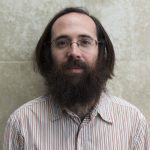 Adam Tinkle is a multidisciplinary artist and scholar, trained in music and currently working at the interface of audio documentary, intermedia, performance, and participatory/collaborative modalities. His book manuscript, on experimental music and the aesthetics of social participation, probes the reputedly recondite 20th century sonics of John Cage, Ornette Coleman, Pauline Oliveros, and their co-conspirators and explores their surprising resonances with contemporary conversations around inclusive, public practice in the arts. His recent artistic projects include a pair of 2017 gallery exhibitions as a member of the collaborative Seven Count that included pirate radio, immersive sampledelia, and participatory sound making; an artist’s book and multimedia environment (exhibited at the Bennington Museum) remixed from material from his award-winning documentary solo performance A Mess of Things; and concert performances of interactive visual music with the duo Timbree. He has published in Leonardo Music Journal, Organised Sound, and American Music Review, and teaches at Skidmore College, where he has guided the development of its summer Storytellers’ Institute since its inception in 2015.
Adam Tinkle is a multidisciplinary artist and scholar, trained in music and currently working at the interface of audio documentary, intermedia, performance, and participatory/collaborative modalities. His book manuscript, on experimental music and the aesthetics of social participation, probes the reputedly recondite 20th century sonics of John Cage, Ornette Coleman, Pauline Oliveros, and their co-conspirators and explores their surprising resonances with contemporary conversations around inclusive, public practice in the arts. His recent artistic projects include a pair of 2017 gallery exhibitions as a member of the collaborative Seven Count that included pirate radio, immersive sampledelia, and participatory sound making; an artist’s book and multimedia environment (exhibited at the Bennington Museum) remixed from material from his award-winning documentary solo performance A Mess of Things; and concert performances of interactive visual music with the duo Timbree. He has published in Leonardo Music Journal, Organised Sound, and American Music Review, and teaches at Skidmore College, where he has guided the development of its summer Storytellers’ Institute since its inception in 2015.
 Javier Barboza is an award-winning filmmaker, Creative Director, Animator, Educator, and Founder of Kaleidoscope Media. His work tackles the complexity of the identity and migration, using a surreal and narrative method to engage the audience in an experience best described as visually immersive. Born and raised in Los Angeles, Javier has been animating since the age of sixteen through after-school inner-city outreach programs. He continued his studies at East Los Angeles College, dedicating himself to fine arts, animation and graffiti. He transferred to California Institute of the Arts (Cal Arts) and majored in Character Animation and Film/Video, earning his Bachelor of Fine Arts degree. He received his Masters in Fine Arts at the University of Southern California (USC), in the School of Cinematic Arts, DADA Animation Division. He was awarded the Princes Grace Film Grant, was selected as an Annenberg Fellow, and has showcased at a variety of film festivals.
Javier Barboza is an award-winning filmmaker, Creative Director, Animator, Educator, and Founder of Kaleidoscope Media. His work tackles the complexity of the identity and migration, using a surreal and narrative method to engage the audience in an experience best described as visually immersive. Born and raised in Los Angeles, Javier has been animating since the age of sixteen through after-school inner-city outreach programs. He continued his studies at East Los Angeles College, dedicating himself to fine arts, animation and graffiti. He transferred to California Institute of the Arts (Cal Arts) and majored in Character Animation and Film/Video, earning his Bachelor of Fine Arts degree. He received his Masters in Fine Arts at the University of Southern California (USC), in the School of Cinematic Arts, DADA Animation Division. He was awarded the Princes Grace Film Grant, was selected as an Annenberg Fellow, and has showcased at a variety of film festivals.
3:00pm Space & Place Panel
Dan Miller, Jeremy Dennis, Benj Gerdes, and Jacqueline Olive
Location: Payne Room, Tang Museum

How is watching and recording spacialized? From the perspectives of film, still photography, and forensic architecture, panelists present on the rules and norms that govern the ways in which places and the people in them are monitored and how surveillance technologies can be used towards justice.
 Dan Miller Dan Miller is a researcher and designer with a background in cultural geography and mapmaking. He develops methods to critically engage geospatial data, media, and visualization in spatial justice work. At SITU, an interdisciplinary architectural practice, Dan facilitates research initiatives that support human rights defenders by applying design, digital reconstruction, mapping, and platform development to fact-finding, advocacy, and litigation. His work with SITU and the Spatial Practice as Evidence and Advocacy project has received recognition from SXSW’s Place By Design competition and has been exhibited at the Storefront for Art and Architecture and the Yale University Art Gallery. He holds a Bachelor of the Arts in Geography and German from Middlebury College and has taught urban and environmental sociology at Queens College, CUNY.
Dan Miller Dan Miller is a researcher and designer with a background in cultural geography and mapmaking. He develops methods to critically engage geospatial data, media, and visualization in spatial justice work. At SITU, an interdisciplinary architectural practice, Dan facilitates research initiatives that support human rights defenders by applying design, digital reconstruction, mapping, and platform development to fact-finding, advocacy, and litigation. His work with SITU and the Spatial Practice as Evidence and Advocacy project has received recognition from SXSW’s Place By Design competition and has been exhibited at the Storefront for Art and Architecture and the Yale University Art Gallery. He holds a Bachelor of the Arts in Geography and German from Middlebury College and has taught urban and environmental sociology at Queens College, CUNY.
 Benj Gerdes is an artist, writer, and organizer working in video, film, and related public formats, individually as well as collaboratively. He is interested in intersections of radical politics, knowledge production, and popular imagination. His work focuses on the affective and social consequences of economic and state regimes, often via historical research, as well as the critical methods through which art and cultural projects can contribute to social change in the present. His work has been exhibited and screened at venues including the Centre Pompidou, National Gallery of Art, New Museum, REDCAT Gallery, Rotterdam International Film Festival, and the Tate Modern. Writings have been published in October, The Journal of Aesthetics + Protest, Incite! and Rethinking Marxism. He has lectured and taught widely in the United States and internationally; prior to assuming his current position at LIU Post this included positions at Cooper Union, Bard College, and Parsons the New School for Art and Design.
Benj Gerdes is an artist, writer, and organizer working in video, film, and related public formats, individually as well as collaboratively. He is interested in intersections of radical politics, knowledge production, and popular imagination. His work focuses on the affective and social consequences of economic and state regimes, often via historical research, as well as the critical methods through which art and cultural projects can contribute to social change in the present. His work has been exhibited and screened at venues including the Centre Pompidou, National Gallery of Art, New Museum, REDCAT Gallery, Rotterdam International Film Festival, and the Tate Modern. Writings have been published in October, The Journal of Aesthetics + Protest, Incite! and Rethinking Marxism. He has lectured and taught widely in the United States and internationally; prior to assuming his current position at LIU Post this included positions at Cooper Union, Bard College, and Parsons the New School for Art and Design.
 Jeremy Dennis uses photography to capture the ineffable. His work is conceptually influenced by Herbert Randall, a local photographer in New York, along with Cindy Sherman, Gregory Crewdson, and Philip Lorca Dicorcia and aims to capture the narrative quality of their imagery. He received a bachelor’s degree in Studio Art from the University of Stony Brook in New York and used his time there to develop his artistic vision and develop new skills and techniques. His work has been displayed in several exhibitions at Stony Brook University, Pennsylvania State University and in Beijing, China. He’s most interested in creating images that tell stories and uses subtle formal elements and lighting to transform a scene into a layered composition that the viewer can decipher and reconstruct according to their own sensibility. He intentionally uses ambiguity to grant the viewer’s story enough space to change the meaning of his photographs with each viewing.
Jeremy Dennis uses photography to capture the ineffable. His work is conceptually influenced by Herbert Randall, a local photographer in New York, along with Cindy Sherman, Gregory Crewdson, and Philip Lorca Dicorcia and aims to capture the narrative quality of their imagery. He received a bachelor’s degree in Studio Art from the University of Stony Brook in New York and used his time there to develop his artistic vision and develop new skills and techniques. His work has been displayed in several exhibitions at Stony Brook University, Pennsylvania State University and in Beijing, China. He’s most interested in creating images that tell stories and uses subtle formal elements and lighting to transform a scene into a layered composition that the viewer can decipher and reconstruct according to their own sensibility. He intentionally uses ambiguity to grant the viewer’s story enough space to change the meaning of his photographs with each viewing.
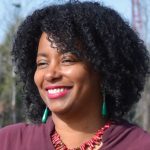 Jacqueline Olive is an independent filmmaker and transmedia producer with artist grants from Sundance, Independent Television Service, Firelight Media, Chicken & Egg Pictures, Catapult Film Fund, and more. After receiving a master’s degree from the University of Florida Documentary Institute in 2007, she worked on the production team of the Emmy Award-winning PBS series, Independent Lens. Jacqueline is currently directing the documentary feature film, Always in Season, which explores the lingering impact of a century of lynching African Americans. Gaining experience with transmedia production as a fellow with the Bay Area Video Coalition, the National Black Programming Consortium New Media Institute, and, most recently, the Open Immersion VR Lab, sponsored by Ford Foundation, National Film Board of Canada, and Canadian Film Centre, Jacqueline is also producing a VR project that explores the film’s theme of dehumanization, offering strategies for moving confidently through the racialized public spaces that black women navigate daily.
Jacqueline Olive is an independent filmmaker and transmedia producer with artist grants from Sundance, Independent Television Service, Firelight Media, Chicken & Egg Pictures, Catapult Film Fund, and more. After receiving a master’s degree from the University of Florida Documentary Institute in 2007, she worked on the production team of the Emmy Award-winning PBS series, Independent Lens. Jacqueline is currently directing the documentary feature film, Always in Season, which explores the lingering impact of a century of lynching African Americans. Gaining experience with transmedia production as a fellow with the Bay Area Video Coalition, the National Black Programming Consortium New Media Institute, and, most recently, the Open Immersion VR Lab, sponsored by Ford Foundation, National Film Board of Canada, and Canadian Film Centre, Jacqueline is also producing a VR project that explores the film’s theme of dehumanization, offering strategies for moving confidently through the racialized public spaces that black women navigate daily.
4:45 pm Surveillance Shorts Screening
Luciano Piazza, Sara Zia Ebrahimi and Lindsey Martin, Sylvain Cruiziat and Mila Zhluktenko, and Alexander Johnston
Location: Somers Room, Tang Museum
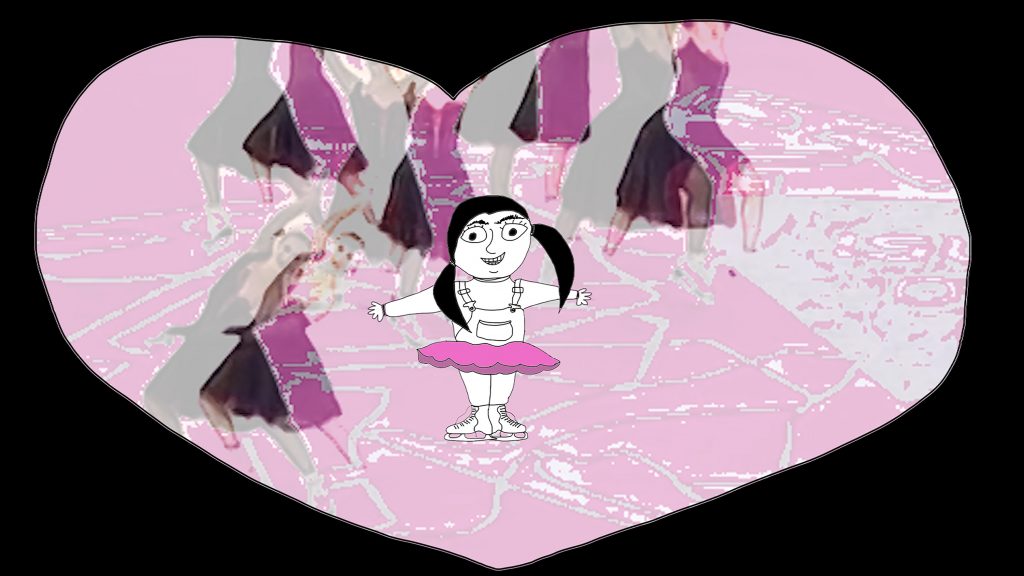
Archival footage from Attica, animation re-enactments of F.B.I. surveillance, drone fiction, and a filmic peeping tom. This multi-textured short film program thinks about how the documentary camera describes and enacts surveillance.
Windows at Night by Luciano Piazza (2013) HD Video, 16min.
This meditative film can be understood as a visual essay on the mass phenomenon of loneliness,or, alternatively, as no more than the life of neighbors moving through their natural urban habitat: apartments. It explores the cinematic qualities of the city’s windows, seeing them as small screens from which a performance, both intimate and public, is woven into a modular narrative. The protagonists of these images are acting under their own direction, possibly oblivious to the fact that there is another director recording them. Windows by Night was recorded in its entirety from windows found in Buenos Aires, New York, Caracas, Chicago, London and Rome.
The F.B.I Blew Up My Ice Skates by Sara Zia Ebrahimi and Lindsey Martin (2016) Animation, 7min.
Based on a true story, the film tells a story from the Iran Hostage Crisis in 1980 from the perspective of Haleh, an eight year old who just wants to enjoy her ice skates. The film raises questions about the human cost of surveillance and the criminalization of immigrant communities, linking past policy decisions with current national discussions around security and xenophobia.
Evidence of the Evidence by Alexander Johnston (2018) Archival Video, 22min.
The 1971 Attica prison uprising is a signature moment of radical resistance in the American Civil Rights movement. The subsequent retaking of the prison, however, is an open wound and “the bloodiest one-day encounter between Americans since the Civil War,” according to the findings of the investigating New York State Special Commission. Evidence of the Evidence explores this tortured history through a granular interrogation of its archival materials. Utilizing never before seen video recordings shot by a police trooper during the four-day uprising, the film offers a visceral ground level account of the events at Attica. It also chronicles the concurrent mediation and narrativization of these events. Through a “close reading” of the footage, and merging agit-prop and media criticism, the film reflects on the myriad roles that moving images play in the production of history and memory, its creation and its destruction.
Find Fix Finish by Sylvain Cruiziat & Mila Zhluktenko (2017) Drone Video, 19min.
Find Fix Finish delves into the accounts of three military drone pilots as they tell the intimate story of the lives they observe on a day-to-day basis. The voyeuristic ocular perspective from a military drone can reduce people to pixels on a screen and a certain decontextualisation is almost necessary to deal with the fact that people can be killed on a push of a button. “Have you ever stepped on an anthill and not given it a second thought?”.
6:00pm Keynote 2 Hasan Elahi Artist Talk
Hasan Elahi
Location: Payne Room, Tang Museum

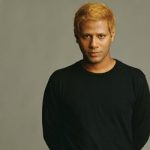 Hasan Elahi is an artist whose work examines issues of surveillance, citizenship, migration, transport, and the challenges of borders and frontiers. His work has been presented in numerous exhibitions at venues such as SITE Santa Fe, Centre Georges Pompidou, Sundance Film Festival, and at the Venice Biennale. His work is frequently in the media and has been covered by The New York Times, Forbes, Wired, and has appeared on Al Jazeera, Fox News, and The Colbert Report. Elahi has spoken about his work to a broad range of audiences such as Tate Modern, Einstein Forum, the American Association of Artificial Intelligence, the International Association of Privacy Professionals, TED, and the World Economic Forum. His recent awards include a Guggenheim Fellowship, an Alpert/MacDowell Fellowship, grants from Creative Capital , Art Matters Foundation, the Doris Duke Foundation for Islamic Art, and he is a recipient of a Hugh M. Hefner First Amendment Award. In 2009, he was Resident Faculty at Skowhegan School of Painting and Sculpture and is currently Associate Professor of Art at University of Maryland, where from 2011 to 2014 was Director of Design | Cultures + Creativity in the Honors College. In 2017, he joined the Board of Directors at Creative Capital.
Hasan Elahi is an artist whose work examines issues of surveillance, citizenship, migration, transport, and the challenges of borders and frontiers. His work has been presented in numerous exhibitions at venues such as SITE Santa Fe, Centre Georges Pompidou, Sundance Film Festival, and at the Venice Biennale. His work is frequently in the media and has been covered by The New York Times, Forbes, Wired, and has appeared on Al Jazeera, Fox News, and The Colbert Report. Elahi has spoken about his work to a broad range of audiences such as Tate Modern, Einstein Forum, the American Association of Artificial Intelligence, the International Association of Privacy Professionals, TED, and the World Economic Forum. His recent awards include a Guggenheim Fellowship, an Alpert/MacDowell Fellowship, grants from Creative Capital , Art Matters Foundation, the Doris Duke Foundation for Islamic Art, and he is a recipient of a Hugh M. Hefner First Amendment Award. In 2009, he was Resident Faculty at Skowhegan School of Painting and Sculpture and is currently Associate Professor of Art at University of Maryland, where from 2011 to 2014 was Director of Design | Cultures + Creativity in the Honors College. In 2017, he joined the Board of Directors at Creative Capital.
Day 4 Sunday, June 10
10:00 am Teaching and Takeaways
Location: Payne Room, Tang Museum
Over breakfast, we will reflect on the weekend as a group, and in smaller break out groups we invite conversation about takeaways for our practices and pedagogies.
